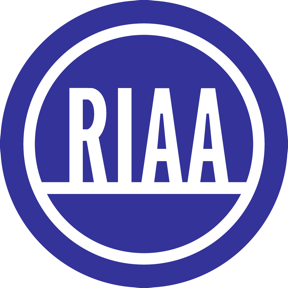RIAA’s budget comes from music labels and distributors. In theory it represents the interests of the music industry. Therefore, it depends on their willingness to pay them to represent music in all its forms. That’s not going so well.
TorrentFreak obtained its latest tax filing and the RIAA is facing the same difficulties as the major music labels. Its budget has been cut to $29.1 million for 2010-2011 from $51.35 million two years earlier. Yet, the most important shift comes from the anti-piracy strategy adopted by the RIAA.
Instead of spending tens of millions of dollars in legal fees, the RIAA is supporting the copyright alert system and its six strikes, a policy inspired by the unpopular and ineffective French anti-piracy law called Hadopi.
In other words, the RIAA is still wasting a lot of money that could have been better used to foster novel Internet services or music experiences and to create new sources of revenues for the artists.
With that new-found austerity, the RIAA cut its staff by nearly 40% from 117 to 72 employees. A budget item stays stable over the years, however. Their lobbying activity is still active to the tune of $2.3 million a year.
But legal fees represent the major expense reduction, from $16.5 million to $2.34 million. Over the years, the RIAA has drastically limited the number of lawsuits for illegal music downloading and will probably stay this course.
RIAA is currently undertaking the rollout of the copyright alert system in the U.S. Based on an agreement between ISPs and copyright holders, infringers will receive up to six alerts. If they fail to change their behavior, their connection may be throttled or even suspended for a few days.
After three years in the planning, the copyright alert system is still not implemented.
There have been previous examples of piracy monitoring laws and frameworks with mixed results. In France, the three-strike Hadopi law was introduced in 2009. An important aspect of the law was to foster legal digital services, but it was mostly abandoned — they only approved legal services with a PUR label in order to identify them.
But the dissuasive part didn’t work either. Instead of downloading movies or music using the BitTorrent protocol, illegal streaming services and direct downloading through file lockers became de rigueur. Given the failure of this plan, the undertaking will probably be stopped in the coming months, when the government finds another way to tackle the issue.
In Sweden, the IPRED law enticed illegal downloaders to massively use a VPN service as a way to anonymize their Internet traffic — another example, another failure.
The major music labels are right to cut the budget of the RIAA because they cannot win the fight against piracy by suing a few downloaders. Nevertheless, backing a multiple-strike IP-collecting strategy is not the answer.
